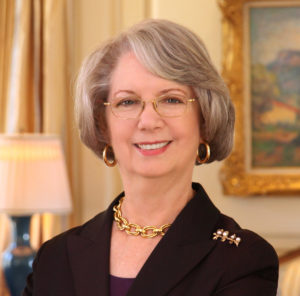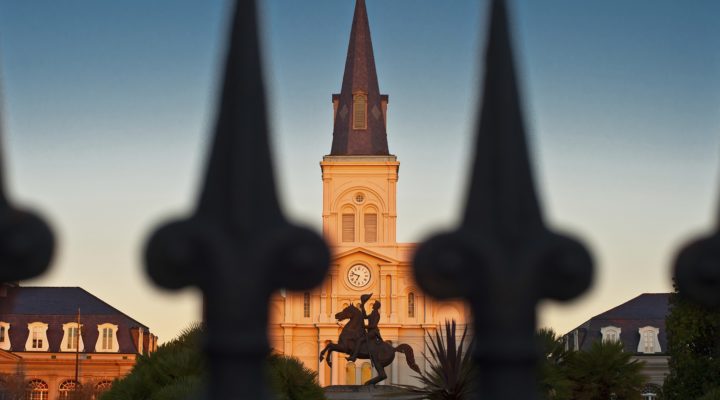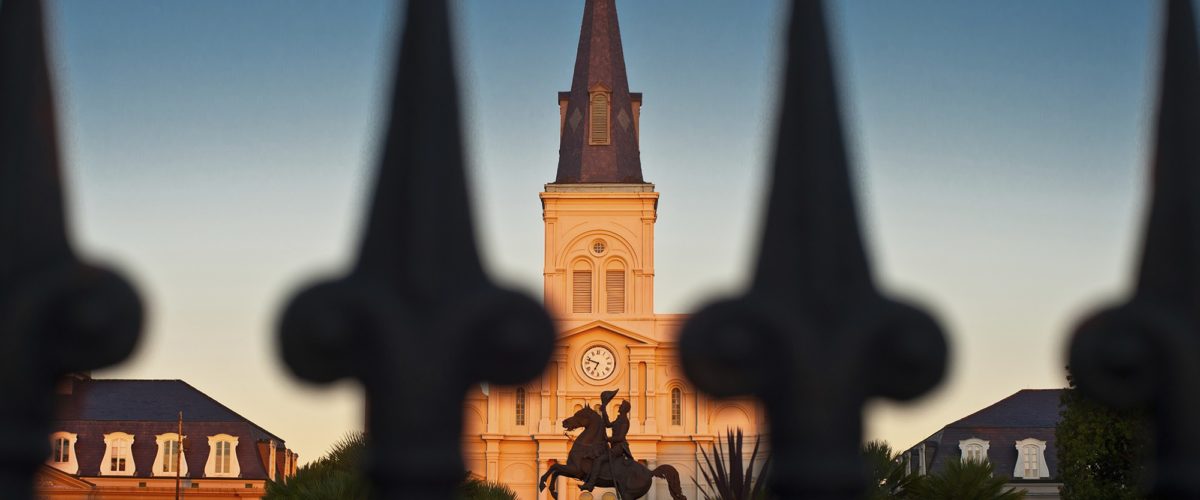I must have been in the third or fourth grade when Mama said to me, “When people want prayer in the schools, they are assuming the person who is praying has the same beliefs they do.” And then she added, reflecting Southern Baptist cultural and evangelical concerns at the time, “It could be a Mormon.” Today she would probably say “Muslim.”
That was Separation of Church and State 101. The lessons would continue throughout her life.

Ella Prichard
Daddy had been transferred from New Orleans, where my mother’s family had resided since 1860, to Texarkana, buckle of the Bible Belt. Mama’s transition from First Baptist Church, New Orleans, home church of most of the administration and faculty of New Orleans Baptist Theological Seminary, to the smaller, more conservative and less-educated churches of our town was not easy.
Mama’s Baptist ancestors had migrated from South Carolina after the Revolution to plant churches on both sides of the Mississippi–Louisiana state line in the early 1800s. When her mother moved to New Orleans as a bride in 1899, she immediately joined First Baptist Church, where she was an active member until her death in 1970. Mama grew up in the shadow of Baptist Bible Institute, forerunner of the seminary. The old Garden District campus was her playground.
New Orleans was heavily Catholic with few Baptist churches, and Mama and her siblings were ridiculed by other children for being Baptist, told they were going to hell for not being baptized. Nuns in their habits taught in the public schools, and Catholic holy days were school holidays. In the small towns of South Louisiana, only Catholics could be buried in the town cemeteries.
My Uncle John, the only “downtown businessman” in the family, said that being Baptist was not respectable until after 1937, when J.D. Grey, later a president of the Southern Baptist Convention, became pastor of First Baptist Church and quickly established himself as a civic leader. Mrs. Grey recognized my mother’s gifts and asked her to teach young adult women in Sunday School, and so for six or eight years, Mama studied the Bible at the weekly teachers’ meetings taught by seminary faculty. And then we moved.
“Being a Baptist in New Orleans was not respectable until after 1937.”
It was only later that my mother pointed out that everyone in my school was Protestant. We had “home room” every morning, when the loudspeakers came on and we said the Pledge of Allegiance, Scripture was read and we had a prayer.
Our next-door neighbor, a Catholic (the only Catholic I ever knew in Texarkana), explained to Mama that the priest threatened to excommunicate any family who sent a child to public school, because of the “Protestant prayers and Bible.” That was long before Vatican II, when the mass was in Latin and Catholics were forbidden to attend Protestant services. Separation of Church and State 102.
I was reminded of those lessons when I visited a high school friend who had moved to Dallas. Her mother was a teacher, assigned to a public school in a predominantly Jewish neighborhood. She was indignant because she was not allowed to decorate her classroom bulletin boards with pictures of the Christmas story and the children didn’t sing Christmas carols. This was 1959. Even at 18, I knew that was the way it should be. Public school wasn’t a place for proselytizing.
Until rather recently, Baptists defined themselves by how un-Catholic they were. I didn’t grow up with Advent or Lenten observances. Baptist churches did not display crosses. Mama said, “We worship a risen Lord, not a dead Christ on the cross.” We didn’t wear crosses around our necks; we didn’t have creches. Baptist churches did not operate private schools (until the Civil Rights Act of 1964), and Baptist institutions did not accept federal funds for any reason. Government funding meant government control, Mama explained, and Baptists stood for separation of church and state.
I heard the stories of persecuted Baptists who were imprisoned and even burned at the stake in Europe; of Roger Williams and the founding of Rhode Island; of the colonial Virginia Baptists who were taxed for the support of the Church of England and whose preachers who went to jail for preaching.
I learned about the Baptist Joint Committee on Public Affairs (now “for Religious Liberty”), how multiple Baptist denominations and associations came together in Washington for the defense of First Amendment rights and protections. However, from 1979, when fundamentalists gained control of the Southern Baptist Convention, Southern Baptists were not interested in supporting separation of church and state. Once the largest contributor to BJC, by 1991 the SBC had withdrawn all financial support.
“We have forgotten our history, that we were once a despised, ridiculed and persecuted people.”
We have forgotten our history, that we were once a despised, ridiculed and persecuted people. We and our Southern culture blended seamlessly, as now-retired Baylor history professor Rufus Spain explained in At Ease in Zion,his seminal book on Southern Baptists from 1865 to 1900.
We were wise to abandon our rigid anti-Catholicism, but it seems to me we have merely substituted other immigrant groups for Catholics. We grew too comfortable in our culture as we grew from minority to majority through our evangelistic efforts, and we developed a taste for political power.
Now all that is threatened, as another Baylor history professor, Barry Hankins, described 37 years later in Uneasy in Babylon, his book about Southern Baptists’ increasing discomfort in an increasingly diverse South in the latter part of the 20th century. Our church rolls are shrinking, and an increasing number of our young people are leaving the church. We are eager for religious accommodation in the broadest sense, where in the name of religion we allow discrimination against those of other faiths and show favoritism to our own; and in so doing, we reject our historic Baptist values and principles.
Near the end of her life, Mama quoted from Romans 12 when she explained in a final lesson why she was sure of her salvation.
Let love be genuine; hate what is evil, hold fast to what is good; love one another with mutual affection; outdo one another in showing honor. Do not lag in zeal, be ardent in spirit, serve the Lord. Rejoice in hope, be patient in suffering, persevere in prayer. Contribute to the needs of the saints; extend hospitality to strangers. Bless those who persecute you; bless and do not curse them. Rejoice with those who rejoice, weep with those who weep. Live in harmony with one another; do not be haughty, but associate with the lowly; do not claim to be wiser than you are. Do not repay anyone evil for evil, but take thought of what is noble in the sight of all. If it is possible, so far as it depends on you, live peaceably with all.
Mama died 31 years ago. What would she say about this mess our country is in today? More important, what would Jesus say?
Ella Wall Prichard is a journalism graduate of Baylor University who is known as a philanthropist and advisor to Baptist causes in Texas and beyond. A longtime member of First Baptist Church in Corpus Christi, she has served on committees and boards of the Baptist General Convention of Texas and the Cooperative Baptist Fellowship. She was a member of the Baylor Board of Regents and a director of the Baylor Alumni. She is the author of Reclaiming Joy: A Primer for Widows, which recounts the story of her husband’s untimely death and her suddenly finding herself the president of the family oil business.


